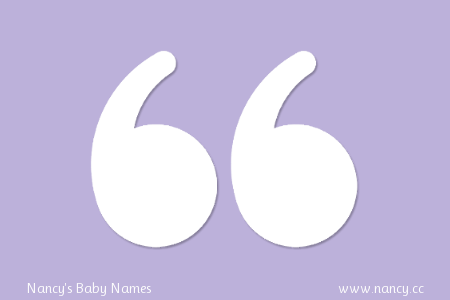From an article about how Storm Barra (which hit the UK and Ireland in December of 2021) came to be named after BBC Northern Ireland weatherman Barra Best:
‘What happened was the head of Irish weather service Met Eireann called me in August and asked me where my name was from and I thought it was a bit strange, I didn’t know why she was asking,’ [Barra Best] told the BBC’s Evening Extra programme.
‘It comes from the south-west of Ireland from Finbarr, St Finbarr in Co Cork and it’s derived from that.’
He continued: ‘She said oh that’s fine, that’s fine. I asked why did you want to know and she said oh you’ll find out in about a month.
‘Of course the email came out and the list of names were announced and she had decided to put my name in there.’
From an article about the increasing popularity of Maori baby names in New Zealand, published in The Guardian (found via Clare’s tweet):
Damaris Coulter of Ngati Kahu descent and Dale Dice of Ngati Hine, Te Aupouri and Nga Puhi [descent] […] [gave] their one-year-old daughter Hinekorako just one name, as was usual pre-colonisation.
Hinekorako’s name came to Dice as he was navigating a waka, a large traditional Maori sailing vessel, from Rarotonga in the Cook Islands back to Aotearoa. “It was coming up to midnight. We came into a little storm. The temperature had dropped … there was thunder … Once we got through the storm we all turned around and just behind us there was this massive white rainbow … It was a lunar rainbow.”
“I told our navigator about it and he goes’ “oh yeah, that’s a tohu (sign), that’s Hinekorako’.” In myth, Hinekorako is also a taniwha (a water spirit), who lives between the spirit and living worlds. Dice wrote the name in his diary and decided that night, were he to ever have a daughter, she would be named Hinekorako.
(According to Encyclopedia Mythica, Hine-korako is “the personification of the lunar bow or halo.”)
From a 1989 Los Angeles Times article called “Names in the News“:
Mark Calcavecchia, who won the British open last month, withdrew from the PGA Championship, which starts Thursday in suburban Chicago, because his wife gave birth to their first child — a seven-pound, six-ounce daughter named Britney Jo.
[To clarify: The baby, born two weeks after the British Open, was named Britney to commemorate the victory.]
From a 2016 article about Pokémon baby names:
I cross-referenced the Social Security Administration’s annual baby name records with all 151 original pocket monsters back through 1995, the year the Pokémon franchise was created. Five species of Pokémon have proven to be appealing baby names for U.S. parents: Tangela, Abra, Paras, Onix, and Eevee.
From a 2013 article about names in the St. Louis Post-Dispatch:
“The Name Game” was a hit for Shirley Ellis in 1965. You know the song: “Shirley-Shirley-bo-burly, banana-fana-fo-furly, fee-fie-foe-murly … Shirley!” She bragged that “there isn’t any name that you can’t rhyme.” While entertaining soldiers in Vietnam, however, she discovered she couldn’t rhyme “Rich” or “Chuck.”
[The other names featured in the original version of the novelty song were Lincoln, Arnold, Tony, Billy, Marsha, and Nick.]



